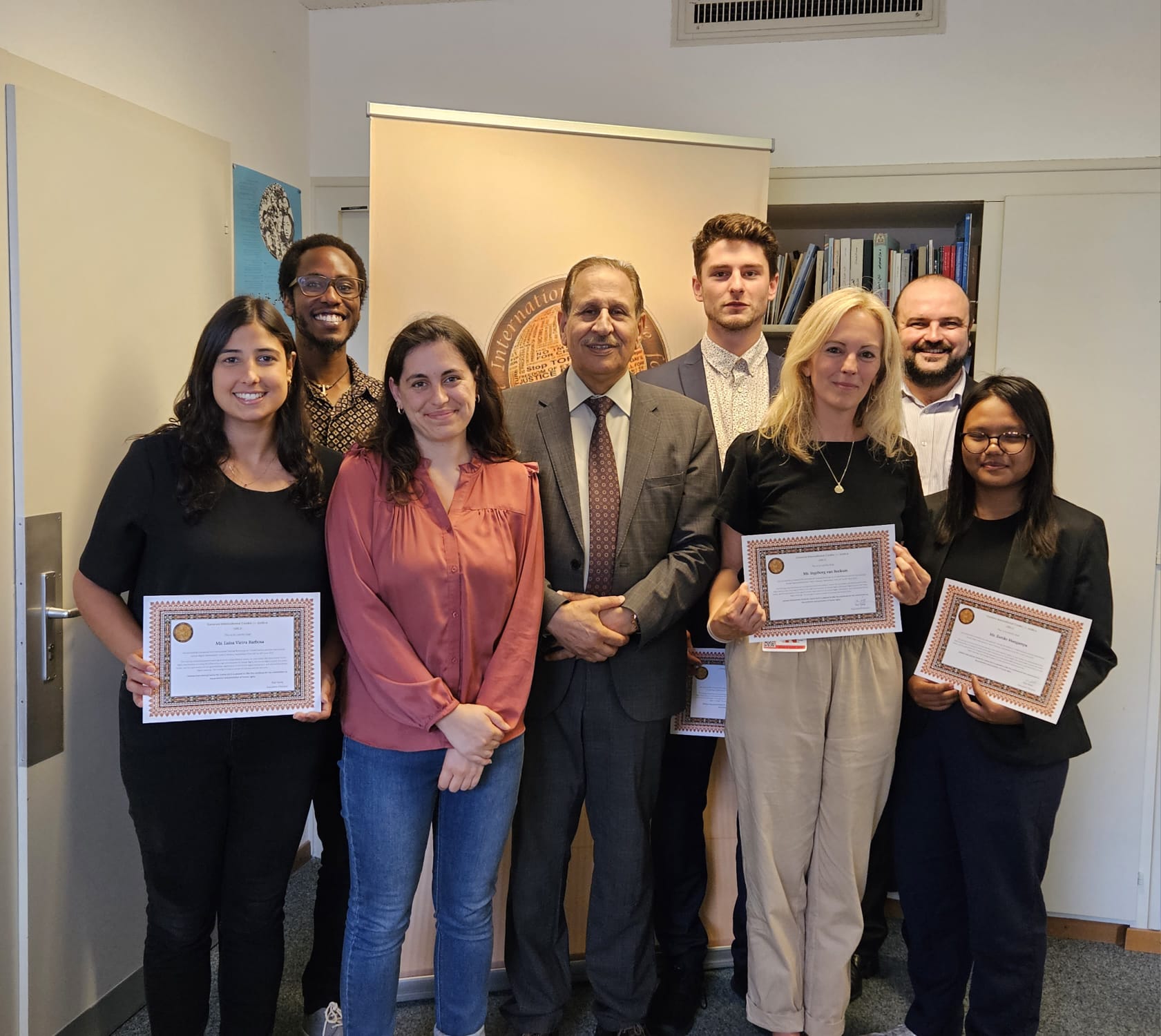
By Eunike Mangampa and Luísa Barbosa / GICJ
In continuing its human rights education, Geneva International Centre for Justice (GICJ) organised two international training courses on the “United Nations and the International Human Rights Mechanisms” in May and June 2023. The courses, each lasting for five days, took place across various locations in Geneva, including the GICJ Office, the United Nations Palais de Nations, and the International Museum of the Red Cross.
 The course comprised learning about the United Nations System and its main bodies, and included lectures on various human rights issues, the work of international bodies concerned with them, and the role of civil society organisations in documenting and reporting violations. It was coordinated by Ms. Isabelle Despetch, and delivered by Mr. Naji Haraj, Mr. Martin Browne, and Mr. Mutua Kobia.
The course comprised learning about the United Nations System and its main bodies, and included lectures on various human rights issues, the work of international bodies concerned with them, and the role of civil society organisations in documenting and reporting violations. It was coordinated by Ms. Isabelle Despetch, and delivered by Mr. Naji Haraj, Mr. Martin Browne, and Mr. Mutua Kobia.
The principal aim of the courses was to introduce the trainees to the workings of the UN System, focusing on the Human Rights Mechanisms, including the Office of the High Commissioner for Human Rights, the Human Rights Council, and the treaty bodies. It also featured discussions on the role of NGOs and the relationship between civil society and the UN.

The first two days were an introduction to the United Nations System and its human rights mechanisms. Trainees were provided with an overview of the main organs and activities of the United Nations and also had the chance to take a deeper dive into the Human Rights Council. When learning about the different human rights mechanisms, trainees were taught about Universal Periodic Reviews and the different Conventions that states were a party to. In this opportunity, participants gained insight into the history of the UN and how it came to be the institution it is today. They also learned about the functioning of the United Nations Educational, Scientific and Cultural Organisation (UNESCO), World Health Organisation (WHO), and the UN Security Council, and how to debate the political influences within the UN as well. Lastly, within this general introduction, the trainees were able to better understand the mandates of the UN Country Rapporteurs and of the Special Procedures of the Human Rights Council.
 Trainees were also able to focus on various thematic issues, such as violence against women and racial discrimination. These sessions were taught by our team of experts, that were each versed in the subject they were assigned to teach. Trainees learned about the different groups assigned to these activities, such as the respective Working Groups and Special Rapporteurs, as well as the treaty bodies relating to these subjects, specifically CEDAW.
Trainees were also able to focus on various thematic issues, such as violence against women and racial discrimination. These sessions were taught by our team of experts, that were each versed in the subject they were assigned to teach. Trainees learned about the different groups assigned to these activities, such as the respective Working Groups and Special Rapporteurs, as well as the treaty bodies relating to these subjects, specifically CEDAW.
They were also given the opportunity to discuss specific action plans, like the Durban Declaration and Programme of Action, and debate the interrelations between gender and racial discrimination, for example.
The last day of the training was focused on International Law. Trainees were introduced to international bodies that work to maintain justice, focusing on the International Court of Justice (ICJ) and the International Criminal Court (ICC). They were given an overview of their work and were able to understand the differences in their mandate, their role in maintaining international peace and their shortcomings.
 The practical side of this course included a visit to some of the international bodies and an overview of their activities. Trainees were able to attend various Human Rights Council discussions and side events during its 53rd Session. These concerned topics that were most relevant to their work and of their interest, such as the Report of the Independent Expert on human rights and international solidarity. They were then tasked with the writing of a report based on a discussion, an exercise that aimed to hone their skills in impactful reporting and effective writing.
The practical side of this course included a visit to some of the international bodies and an overview of their activities. Trainees were able to attend various Human Rights Council discussions and side events during its 53rd Session. These concerned topics that were most relevant to their work and of their interest, such as the Report of the Independent Expert on human rights and international solidarity. They were then tasked with the writing of a report based on a discussion, an exercise that aimed to hone their skills in impactful reporting and effective writing.
Finally, upon the completion of the course, the participants obtained GICJ certificates confirming their successful completion of the Training Course on the United Nations System and the International Human Rights Mechanisms.
To join GICJ training programs please write to: This email address is being protected from spambots. You need JavaScript enabled to view it.. Please note that
- Participants are responsible for all personal costs to attend the training including, but not limited to, travel arrangements, accommodation, board and medical insurance, and the course fees.
- For training in Geneva, participants should try to get the Swiss or Schengen visa by themselves. GICJ can’t interfere in this regard
- Photo Gallery -








